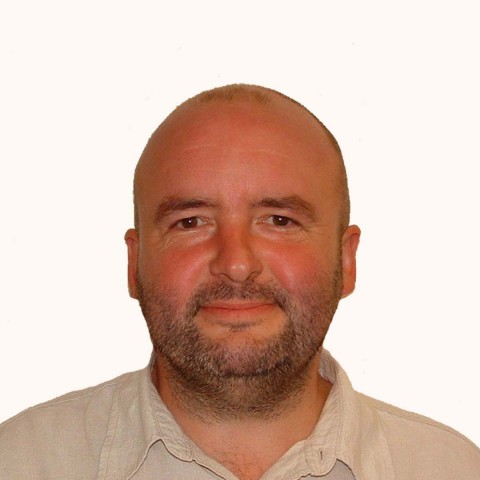Creative Writing: Writing and Publishing Fiction MA


You are viewing Course summary
Course Summary
Our MA in Creative Writing: Writing and Publishing Fiction is a stimulating and rewarding course designed to help you develop the craft of excellent writing, enable you to produce original fiction, and equip you with the knowledge to get it published.
This distinctive course comprises four modules – Writing Short Fiction for Publication, Writing Novels for Publication, Getting Published, and The Writing Project – which are taught by a team of published authors, editors, and scholars. Their publications include: flash fiction; novels; short-story anthologies and collections; articles and essays; interviews; student textbooks; and writers’ guides. Two of the teaching team edit Flash: The International Short-Short Story Magazine, which has published stories by students on the MA.
The Exton Park library is well stocked with creative writing textbooks and houses the Flash Fiction Special Collection, the world’s largest archive of flash-related books and magazines.
What you'llStudy
You will study and try your hand at writing flash fiction, short stories, novellas and novels. Getting Published looks at the world of fiction publishing. For The Writing Project, you will be able to write a collection of flashes and/or short stories, a novella or a novel.
Module content:
This module (required for MA qualification) enables students to pursue and complete a selected long writing project as the culmination of their programme. Coursework for modules already completed may provide the basis for this much more substantial project (though inclusion of verbatim work from earlier assessments will not form part of the assessment or word count). This module gives students the opportunity to develop their own specialist interest to produce a substantial prose text aimed at any of the available publishing and media outlets. The range of acceptable projects includes: a collection of short-short stories and/or short stories; a novella; an extract from a novella/novel.
Module aims:
- To enable students to devise, develop and complete a substantial writing project.
- To promote the practical application of the combination of writing skills acquired in the taught modules.
- To guide the student, through tutorial supervision, through the processes and methodologies of a large project from conception to completion.
- To encourage the student to complete, through the exhaustive processes of drafting and revision, a final document which not only constitutes the summative outcome of their writing but also reflects the formative processes involved in its creation.
Module content:
This module is offered as an alternative to EN7104 The Writing Project. It allows students who do not wish to complete the full project required for the award of an MA to exit, if successfully completing the module, with a Postgraduate Diploma in Creative Writing. [The University requires 120 credits of successfully completed modules at M level for the award of a Postgraduate Diploma; the taught modules preceding this module represent 100 credits, hence the 20-credit option here described.] The module enables students to pursue and complete a selected short writing project. Coursework for modules already completed may provide the basis for part of this project (though inclusion of verbatim work from earlier assessments will not form part of the assessment or word count). This module gives students the opportunity to develop their own specialist interest to produce a prose text. The range of acceptable projects includes: a collection of short-short stories and/or short stories; a short story; an extract from a novella/novel.
Module aims:
- To enable students to devise, develop and complete a writing project.
- To promote the practical application of the combination of writing skills acquired in the taught modules.
- To guide the student, through tutorial supervision, through the project.
- To encourage the student to complete, through drafting and revision, a final piece which not only constitutes the summative outcome of their writing but also reflects the formative processes involved in its creation.
Module content:
Using a number of representative late-twentieth-century and contemporary texts, the module will examine the ways in which flash fiction (‘the short-short story’) and the short story are constructed. This will involve close analysis of such crucial aspects of short-fiction writing as: singleness of effect; economy; implication; openings; endings; setting; characterisation; dialogue; and point of view. Authors studied might include Beryl Bainbridge, Lydia Davis, Dave Eggers, David Gaffney, Vanessa Gebbie, Tania Hershman, Nadine Gordimer, Etgar Keret, John McGahern, Alice Munro, Rose Tremain and William Trevor. From analysis of such exemplars, students will gain technical knowledge and an awareness of what makes short fiction both publishable and a critical success. They will apply these insights in their own creative practice, experimenting with different forms, styles and subject matter.
Module aims:
- To explore a range of late-twentieth-century and contemporary short fiction.
- To enhance students’ understanding of the formal characteristics that make short fiction both publishable and a critical success.
- To develop students’ proficiency in using the techniques of short fiction.
- To enable students to write original and complete pieces of short fiction.
Module content:
Module aims:
- To facilitate a critical understanding of the techniques of prose fiction in novel form.
- To explore some of the practical implications of key aspects of prose fiction writing.
- To explore location, characterisation and the methods of representing speech, thought and action in the prose that goes to make up a novel.
- To enable students to develop their own original novelistic prose fiction.
Module content:
Module aims:
- To enhance students’ understanding of the world of publishing fiction.
- To explore the different ways students can develop their public profiles as authors.
- To encourage professional development in relation to the students’ creative writing.
- To enable students to develop practical strategies in relation to getting their creative writing published.
Teaching
Typically, Writing Short Fiction for Publication and Writing Novels for Publication are taught by nine weekly two-hour seminars and two-hour workshops; and Getting Published is taught by five weekly two-hour seminars and two-hour workshops. One-to-one tutorials are also available. For The Writing Project, you will work one-to-one with a supervisor.
Assessment
Modules are assessed by coursework: creative pieces, prefaces, a short journal, two short essays, and a 16,000-word writing project. There are no formal exams.
The total workload, including reading, preparation, seminars, workshops, tutorials, research, and writing, is approximately 37.5 hours per week
Entry Requirements
2:2 honours degree
A minimum of a 2:2 honours degree, or the equivalent, in an appropriate discipline is required (for example, Creative Writing; English Literature; English Language; Drama; Theatre Studies; Communication Studies; Cultural Studies; Film Studies; Journalism; Professional Writing). Applicants with lower qualifications, a degree in another discipline or appropriate relevant experience should contact the programme leader for advice.
Admission to the course is subject to an acceptable entry qualification profile, a sample of creative writing (fiction), and in some instances an interview.
In your personal statement on the application form, please give details of the fiction you have written (including any publications), what (if any) fiction-related events you have attended (e.g. workshops, readings), which fiction writers you particularly admire and why, and why you would like to do our MA.
When applying, please upload a sample of your fiction (c. 15 pages of flashes, a short story, or an extract of a longer fictional prose piece).
2:2 honours degree
A minimum of a 2:2 honours degree, or the equivalent, in an appropriate discipline is required (for example, Creative Writing; English Literature; English Language; Drama; Theatre Studies; Communication Studies; Cultural Studies; Film Studies; Journalism; Professional Writing). Applicants with lower qualifications, a degree in another discipline or appropriate relevant experience should contact the programme leader for advice.
Admission to the course is subject to an acceptable entry qualification profile, a sample of creative writing (fiction), and in some instances an interview.
In your personal statement on the application form, please give details of the fiction you have written (including any publications), what (if any) fiction-related events you have attended (e.g. workshops, readings), which fiction writers you particularly admire and why, and why you would like to do our MA.
When applying, please upload a sample of your fiction (c. 15 pages of flashes, a short story, or an extract of a longer fictional prose piece).
English Language Requirements
For those who do not have IELTS or an acceptable in-country English language qualification, the University of Chester has developed its own online English language test which applicants can take for just £50.
For more information on our English Language requirements, please visit International Entry Requirements.
Fees and Funding
£8,505 per year (2024/25)
Guides to the fees for students who wish to commence postgraduate courses in the academic year 2024/25 are available to view on our Postgraduate Taught Programmes Fees page.
£14,750 per year (2024/25)
The tuition fees for international students studying Postgraduate programmes in 2024/25 are £14,750.
The University of Chester offers generous international and merit-based scholarships for postgraduate study, providing a significant reduction to the published headline tuition fee. You will automatically be considered for these scholarships when your application is reviewed, and any award given will be stated on your offer letter.
For more information, go to our International Fees, Scholarship and Finance section.
Irish Nationals living in the UK or ROI are treated as Home students for Tuition Fee Purposes.
Your course will involve additional costs not covered by your tuition fees. This may include books, printing, photocopying, educational stationery and related materials, specialist clothing, travel to placements, optional field trips and software. Compulsory field trips are covered by your tuition fees.
If you are living away from home during your time at university, you will need to cover costs such as accommodation, food, travel and bills.
The University of Chester supports fair access for students who may need additional support through a range of bursaries and scholarships.
Full details, as well as terms and conditions for all bursaries and scholarships can be found on the Fees & Finance section of our website.
Your Future Career
Job Prospects
Graduates have gone on to develop their writing profiles and be published. They have also applied for PhDs. Jobs include teaching, university administration, and marketing.
Careers service
The University has an award-winning Careers and Employability service which provides a variety of employability-enhancing experiences; through the curriculum, through employer contact, tailored group sessions, individual information, advice and guidance.
Careers and Employability aims to deliver a service which is inclusive, impartial, welcoming, informed and tailored to your personal goals and aspirations, to enable you to develop as an individual and contribute to the business and community in which you will live and work.
We are here to help you plan your future, make the most of your time at University and to enhance your employability. We provide access to part-time jobs, extra-curricular employability-enhancing workshops and offer practical one-to-one help with career planning, including help with CVs, applications and mock interviews. We also deliver group sessions on career planning within each course and we have a wide range of extensive information covering graduate jobs and postgraduate study.













